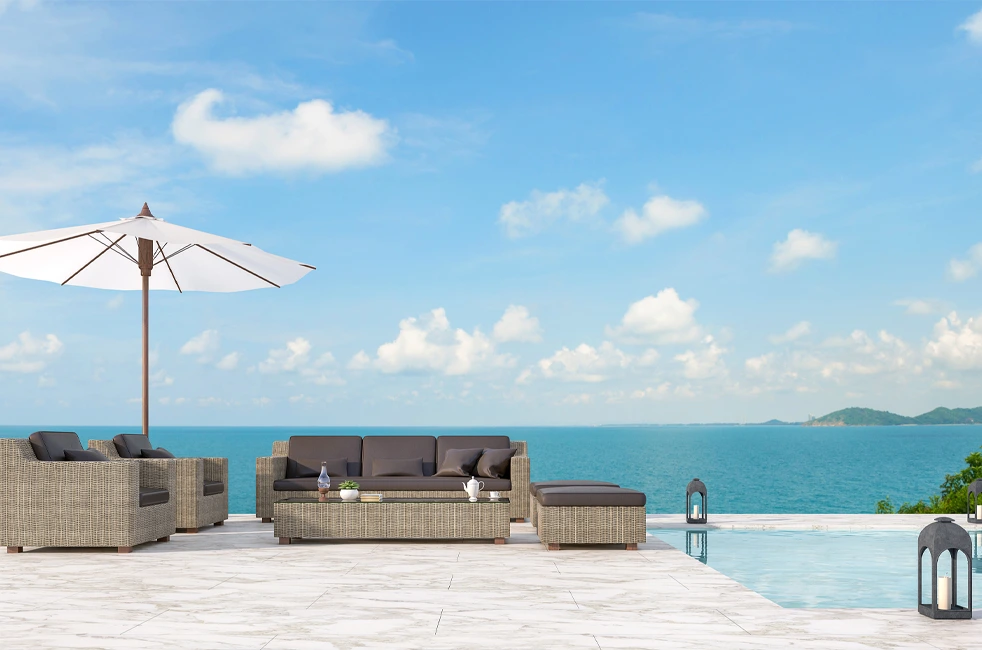Waterproofing with Mortars
Is It the Right Solution for Your Project?
Waterproof mortars are widely used in construction to address moisture problems on surfaces exposed to water or constant damp—such as basements, terraces, or below-ground walls.
These products work by forming a protective barrier on the surface, but they also present limitations that should be taken into account if you’re looking for a durable and high-performance waterproofing solution.

Types of waterproof mortars
Waterproof Mortar for damp issues
Used to protect against moisture on floors and walls, this type of mortar requires multiple layers and can be difficult to install if the surface is not perfectly prepared. It also requires drying time and specific environmental conditions for proper application.
Lime mortar for damp walls
Ideal for addressing rising damp in walls, lime mortar is primarily used in the restoration of historic buildings. However, like other mortars, installation is slow and labour-intensive, and it requires regular maintenance to prevent deterioration.
Mortar for rising damp
This type of mortar is specifically designed to stop capillary moisture rising through walls. While effective in certain cases, it is prone to cracking or losing performance over time, especially if not applied under the correct conditions.
Comparison
Waterproofing with waterproof mortars
- Low durability
- Sensitive to environmental conditions
- Difficulties in critical areas
- Frequent maintenance required
Revestech solution
- Extreme durability
- Simpler installation
- Adaptability to any surface
- Resistance to adverse conditions
Drawbacks of waterproofing with mortars

Complex installation
Requires 2 to 4 coats of product, and in many cases, a reinforcement mesh must be used to prevent cracking. This increases both cost and installation time.

Critical environmental conditions
The substrate must be completely dry before applying waterproof mortar, and rainfall during installation may require complete removal and reapplication.

Issues in critical areas
Corners, baseboards, and uneven surfaces are difficult to treat and may lead to leaks if not executed perfectly.

Frequent maintenance
Moisture-resistant mortars deteriorate quickly in areas exposed to temperature fluctuations or constant dampness, resulting in more repairs and higher long-term costs.
Advantages of Revestech waterproofing membranes compared to mortars
While waterproof mortars may be useful in certain cases, Revestech membranes offer a far more practical and effective solution. Here are some of their advantages:

Extreme durability
Unlike damp-proof mortars, Revestech membranes require no ongoing maintenance and have a lifespan exceeding 50 years.

Simpler installation
Revestech membranes don’t require multiple coats or reinforcement meshes, making them easier to install and significantly reducing construction time.

Adaptability to any surface
Unlike mortars, which require a perfectly dry and clean base, Revestech membranes can be installed without such strict conditions. They are also ideal for joints, corners, and other challenging areas.

Resistance to extreme conditions
Revestech membranes withstand severe weather conditions without losing their waterproofing properties—unlike lime or cementitious mortars, which deteriorate over time.
While waterproof mortars are a popular option for dealing with damp problems, the complexity of installation and high maintenance needs make them less ideal in the long term. Revestech waterproofing membranes provide a more durable, efficient, and easy-to-install solution.
Choose Revestech membranes and enjoy superior protection—without complications or constant upkeep. Protect your project with the best waterproofing technology on the market.
Frequently Asked Questions
What is waterproofing with mortars and how does it work?
Waterproofing with mortars involves applying multiple layers of a cementitious mix to the surface to prevent water infiltration. This technique is commonly used on underground structures or moisture-exposed surfaces. However, its effectiveness depends on precise application and multiple coats. In comparison, Revestech membranes offer instant waterproofing in a single layer, without strict drying conditions or added reinforcements.
What are the differences between waterproof mortars and other systems like asphalt or membranes?
Waterproof mortars require several layers and reinforcements to prevent cracks. Revestech membranes, on the other hand, provide continuous protection with just one layer. Unlike asphalt—sensitive to temperature shifts—and mortars that demand drying and dry surfaces, Revestech membranes install quickly and resist extreme climates from day one.
What disadvantages do mortars have compared to other waterproofing methods?
Mortars present several drawbacks:
- Require 2 to 4 coats, increasing time and cost.
- Crack easily in corners and critical areas.
- Must be applied on completely dry substrates.
- Labor-intensive and often need reinforcement meshes.
Revestech membranes don’t require extra reinforcement, are highly resistant, and remain intact even in difficult areas like corners or joints.
Are waterproof mortars resistant to water pressure or constant moisture?
Mortars may handle moderate water pressure but are not ideal for constant humidity or high hydrostatic pressure, as they tend to degrade and crack over time. Revestech membranes are designed to withstand both hydrostatic pressure and ongoing water exposure, guaranteeing long-term watertightness.
How many coats of waterproof mortar are needed for effective protection?
At least 2 to 4 coats are required, often with reinforcement mesh, which makes installation labor-intensive and expensive. Revestech membranes only require a single layer, offering lasting protection without long drying times or added materials.
How long does waterproof mortar take to dry, and when can the treated surface be used?
Each layer of waterproof mortar needs 24–48 hours to dry, with full curing potentially taking up to a week. Any exposure to rain or moisture during this time can compromise performance. In contrast, Revestech membranes are fast to install and ready for use almost immediately, with no long drying times.
Is maintenance required for surfaces treated with waterproof mortar?
Yes. Mortar-treated surfaces require regular upkeep, as cracks, detachment, or surface wear are common. New layers are often needed to maintain performance. Revestech membranes offer more than 50 years of durability with minimal maintenance, making them a much more reliable and cost-effective choice.
How does foot or vehicle traffic affect mortar-treated surfaces?
Pedestrian or vehicle traffic can cause faster wear and cracking in mortar-treated areas, leading to ongoing repairs. Revestech membranes are designed to handle both types of traffic without compromising the integrity of the waterproofing system—ensuring long-lasting protection for decades.



